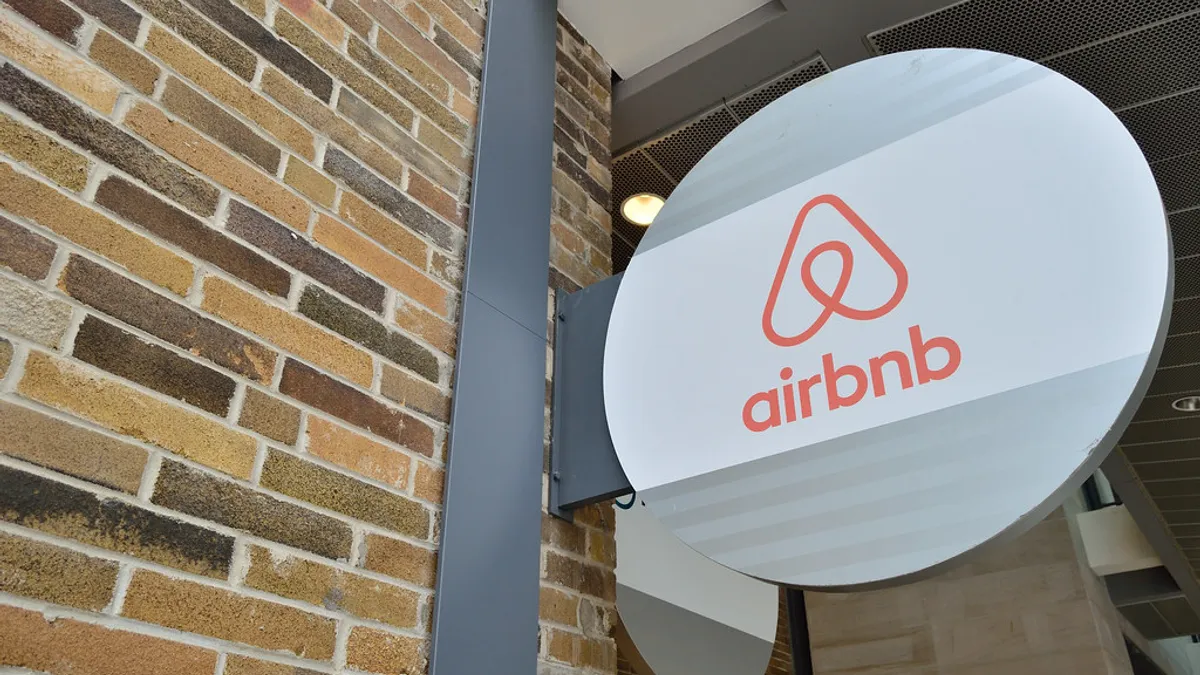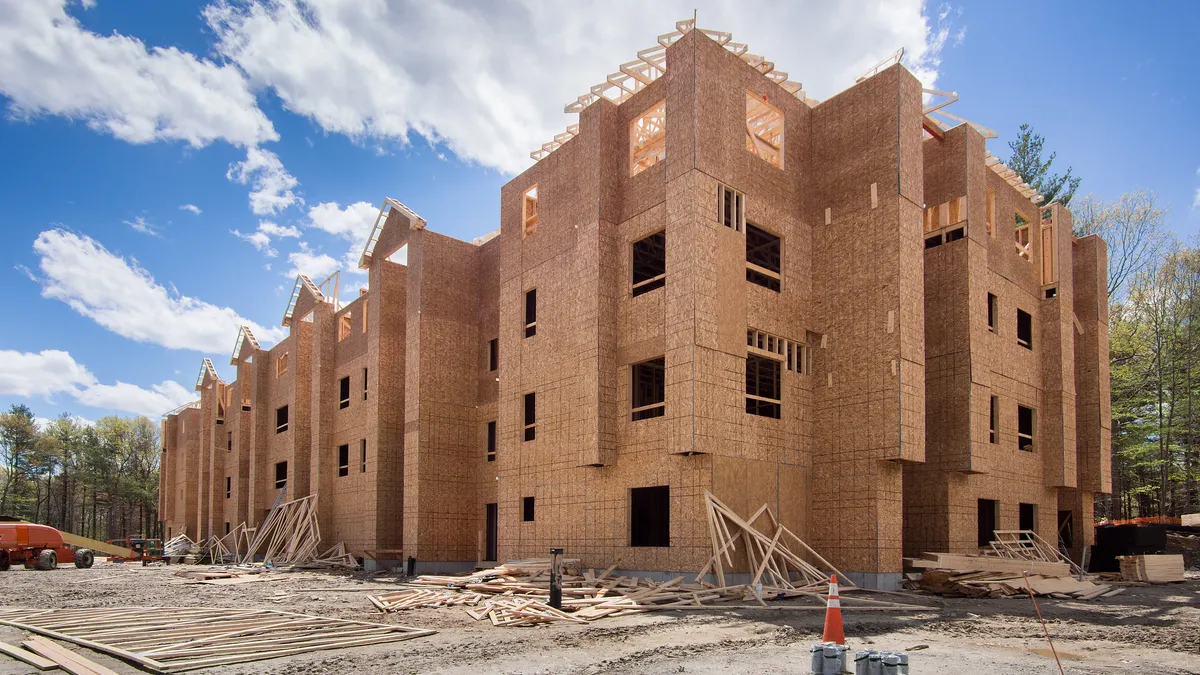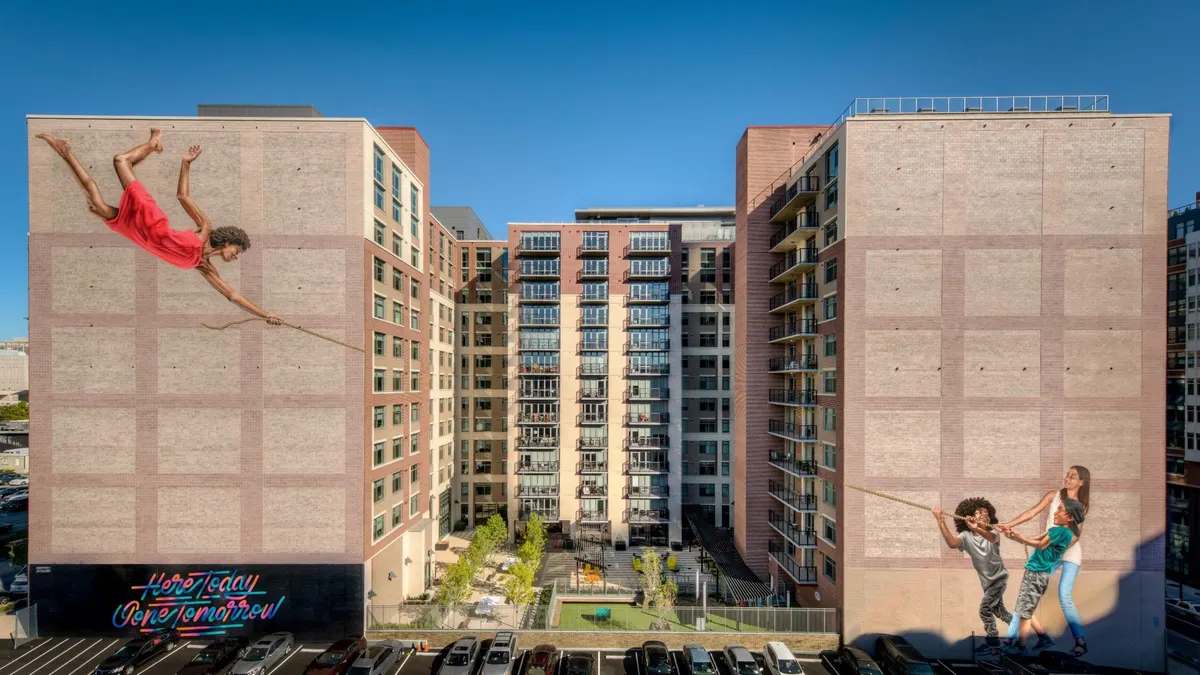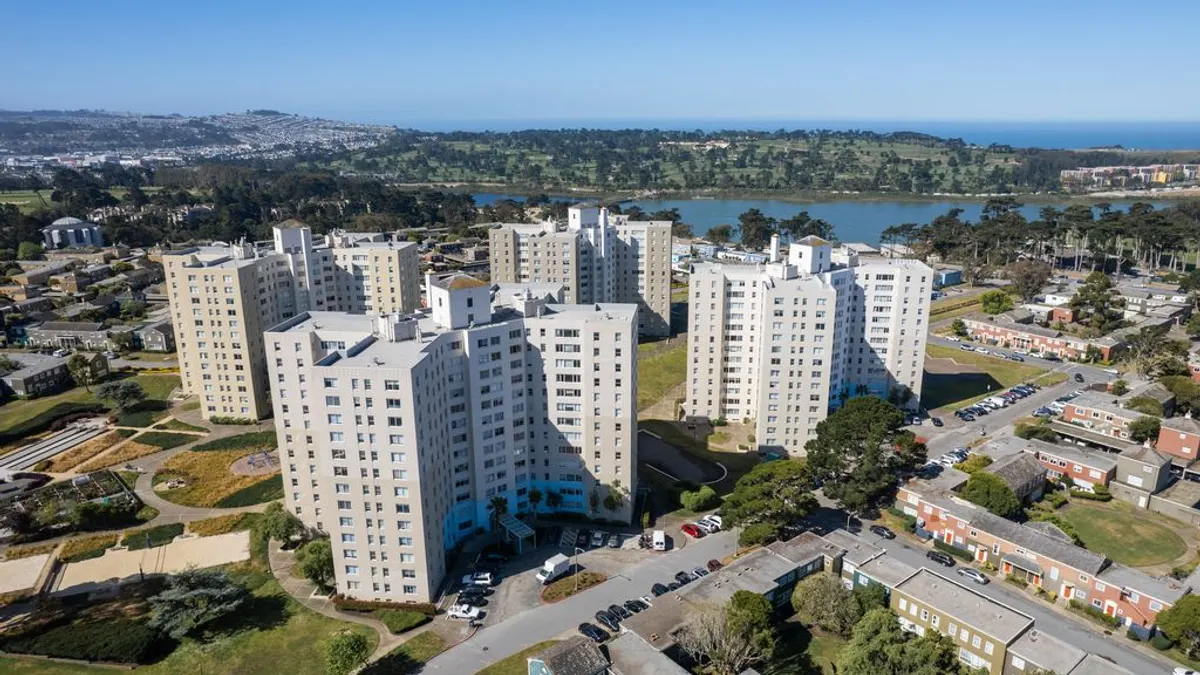Kirsten Jackson and her roommate were excited when they moved into their apartment on the sixth floor of a sparkling, luxury high-rise in downtown Dallas.
Jackson was eager to try out the building’s amenities — an infinity pool that overlooks downtown Dallas, a clubhouse with a pool table and shuffleboard and a fitness-club-quality gym — also located on the sixth floor.
Jackson’s first six months in the community were great. She enjoyed meeting the mostly 20- and 30-something neighbors and community events like theme parties.
“We were so elated with our experience here,” Jackson said. “We loved it. It was amazing.”
But in February, everything changed when the building’s manager introduced what it called the property’s “newest amenity” — Airbnb rentals. The arrival of short-term rentals at the building soured the experience for Jackson and other long-term residents.
“We’re both girls on this floor where everything is,” Jackson said. “We were really concerned about privacy.”
Jackson's story serves as an example of the kinds of issues apartment operators can face when they introduce short-term rentals into their properties. If they don’t handle these types of programs correctly, they’re essentially flushing the money spent on resident experience and amenities down the toilet.
But there are firms, including some of the industry’s largest managers, that see an opportunity to generate revenue despite these issues, especially if occupancies decline, though most of them did not want to comment for this article. Short-term rentals give these owners a way to monetize empty units and allow them to maximize their profit.
“People are willing to pay more for an option that's for a couple of nights, for a couple of weeks or a couple of months,” said Brian Carrico, co-founder and CEO of Austin, Texas-based The Guild, which manages short-term rentals.
A sense of community upended
Once Airbnb guests started arriving, the issues at Jackson’s building were most noticeable at the pool. “I would be lying in the sun,” Jackson said, “and I would have guys come over either trying to ask for my phone number or where the nearest mall is. I’m not as comfortable anymore.”
Jackson said she also spent a lot of time serving as a guide for short-term guests. She isn’t alone. “Airbnb folks are lost,” said one resident who asked not to be identified. “They have no idea what to do. You're in the elevator, and there are random people asking you to buzz them to random floors.”
The amenities in the building are also suffering, Jackson said. Residents have to pay an amenity fee to access the clubhouse, gym and pool, and they were originally told they would receive 24/7 access. “Now everything closes at midnight because there have been people breaking the golf simulators or smashing tiles in the pool room,” Jackson said. “So we're still paying the fee, but we get less access.”
The signs of Airbnb guests aren’t just in the pool and other common areas. Corridors are now sometimes dirty and carpets are stained. Residents also say the gate to get into the parking garage is littered with lockboxes for their guests. San Francisco-based Airbnb did not respond to Multifamily Dive questions for this story.
“There are insufficient amounts of guest parking,” the unidentified resident said. “When this Airbnb program started, all the guest spaces would be reserved for short-term rentals. There were also instances where the gate was broken for six to eight weeks. At that point, security was just kind of out the door.”
A cautious approach
Jackson's experience is a cautionary tale for property managers considering a move to short-term rentals. Allowing short-term rentals, whether through a management company or an individual resident, has been a long-term conversation in the industry. Companies like Houston-based Hines, Atlanta-based AMLI Residential, Houston-based REIT Camden, Atlanta-based Novare Group and Greenbelt, Maryland-Bozzuto have utilized them.
AMLI continues to offer short-term rentals, working with San Francisco-based Kasa, which manages floors in new buildings in cities like Chicago and Denver. These programs can help boost occupancies in buildings that AMLI is leasing up. But that isn’t the only reason confining them to an entire floor in a property works well.
“We found having a larger number of units spread out all over the place into our resident base was a little bit harder of a pill to swallow for our residents versus starting off the lease ops,” said Maria Banks, president and CEO of AMLI Management Co. “It's not something new that's coming to an existing asset.”
Others are more hesitant about introducing short-term rentals.
Chris Finlay, founder and CEO of Vienna, Virginia-based apartment owner, manager and developer Middleburg Communities, is one of those owners who has eschewed short-term rentals. His primary concern is safety.
“When you rent a home, the No. 1 thing you want is safety and security,” Finlay said. “You want something where you feel safe and recognize your neighbors. If you have different people walking down the hall every day, that's not something most residents want.”

Others harbor concerns that many short-term rentals could mean managers constantly need to fill apartments.
“It could be something where you're in a perpetual lease-up if you're not paying attention to that lease expiration and always trying to keep up with that short-term rental pace,” said Dana Caudell, president of property management at Wellington, Florida-based apartment operator and builder The Bainbridge Cos.
Still, Caudell hasn’t shut the door to short-term rentals. “We've looked at it, but we also keep our current resident base in mind,” Caudell said. “I know there are concerns there. We’ve talked through that with a few [short-term rental] companies but have not had to pull the trigger yet.”

Atlanta-based owner and manager Cortland has also avoided the large-scale use of short-term rentals, though some properties it has acquired contained them. “In some cases, we've kept them in place to just monitor them and measure them,” said Mike Gomes, chief experience officer at Cortland.
Gomes said Cortland “is not closed off to the idea” of doing short-term rentals on a larger scale, but it will take a surgical approach by looking at surveys.
“If we see these types of residents with these types of jobs have a higher interest in short-term rentals,” then the company could look at offering short-term rentals at targeted communities with that renter profile.
Gomes also sees revenue opportunities in short-term rentals, but there are operational and legal complications because some cities ban or limit them, like New York City and San Francisco. “Although there might be a net incremental gain, is that large enough that it is worth changing an aspect of how our operation works?” he said.
Meeting the short-term need
A segment of entrepreneurs, like The Guild’s Carrico, say they can smooth over issues with existing renters like Jackson and help owners like Gomes avoid restructuring their operations. These companies handle the management of short-term rentals for apartment owners, easing the burden on property operators, and then list them on sites.
These short-term rental operators have typically operated with one of two different models. Some lease apartments from the property manager and then attempt to rent them out for more than they pay in rent. Others, take a percentage, of the rent from the operator. For vacation rentals, these fees can range from 12% to 50%.

Although the pandemic wiped out a number of these short-term operators, many remain, like The Guild, San-Francisco-based Sonder and Washington, D.C.-based WhyHotel, which recently rebranded as Placemakr. As they evolved, The Guild and Placemakr have branched beyond short-term rentals to operate entire buildings where they offer apartments for long- and short-term residents.
In March, Placemakr secured $90M in equity investment for growth and property acquisitions. In January, The Guild acquired CREA Management, the property operations division of Cypress Real Estate Advisors, which has 5,000 units in four major markets.
Carrico thinks the situation that Jackson and her friends are facing comes from a lack of processes, like emails and texts to direct people through check-in or kiosks and signage directing people to their units and amenities.
Managers can also proactively manage short-term rental guests overcrowding pool spaces and other amenity spaces with planning, staffing and information, according to Carrico. Banks said Kasa has quickly addressed problems in AMLI buildings.
“We have people on the weekend that are out there, and we have rules clearly communicated ahead of time,” Carrico said. “If they start to violate rules, they get warned about it. If they can't follow the rules, we’ll have to ask you to leave.”
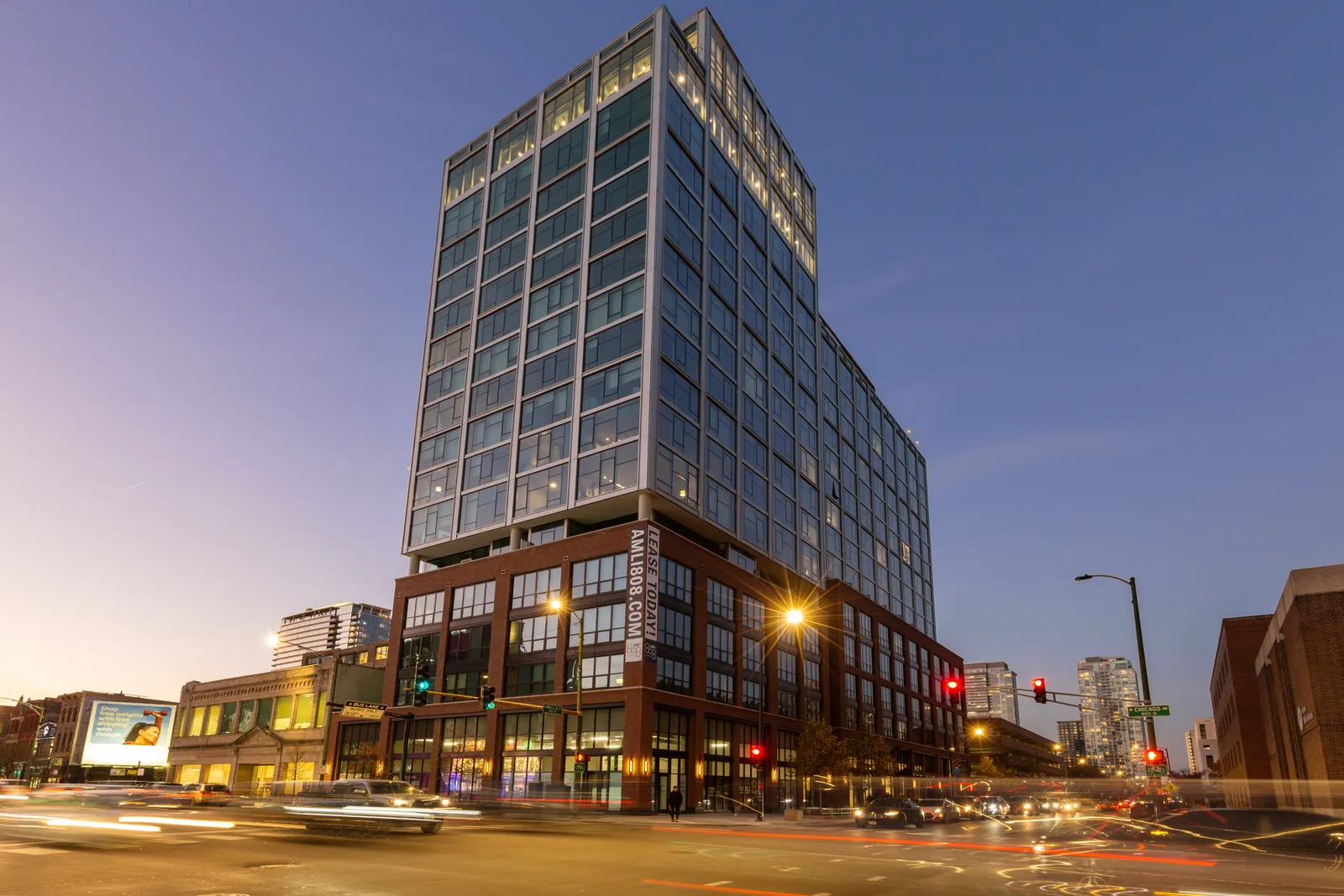
Carrico contends that long-term residents can benefit from the services his company and other short-term providers offer on site, like a 24/7 concierge. “If your Wi-Fi is not working, if you need help getting a friend up to your room in the building or if you need to add a parking spot here, you can't do that 24/7,” he said.
Although those services might be advantageous to long-term residents, Jackson and her friends would rather just have a clean place to live where they aren’t interrupted by people asking for directions or their phone numbers. Ultimately, she and her roommate chose not to renew because of short-term guests.
“Nobody I've talked to that lives in this building is happy about it,” Jackson said. “It feels like a hotel. And not an amazing one.”
Click here to sign up to receive multifamily and apartment news like this article in your inbox every weekday



